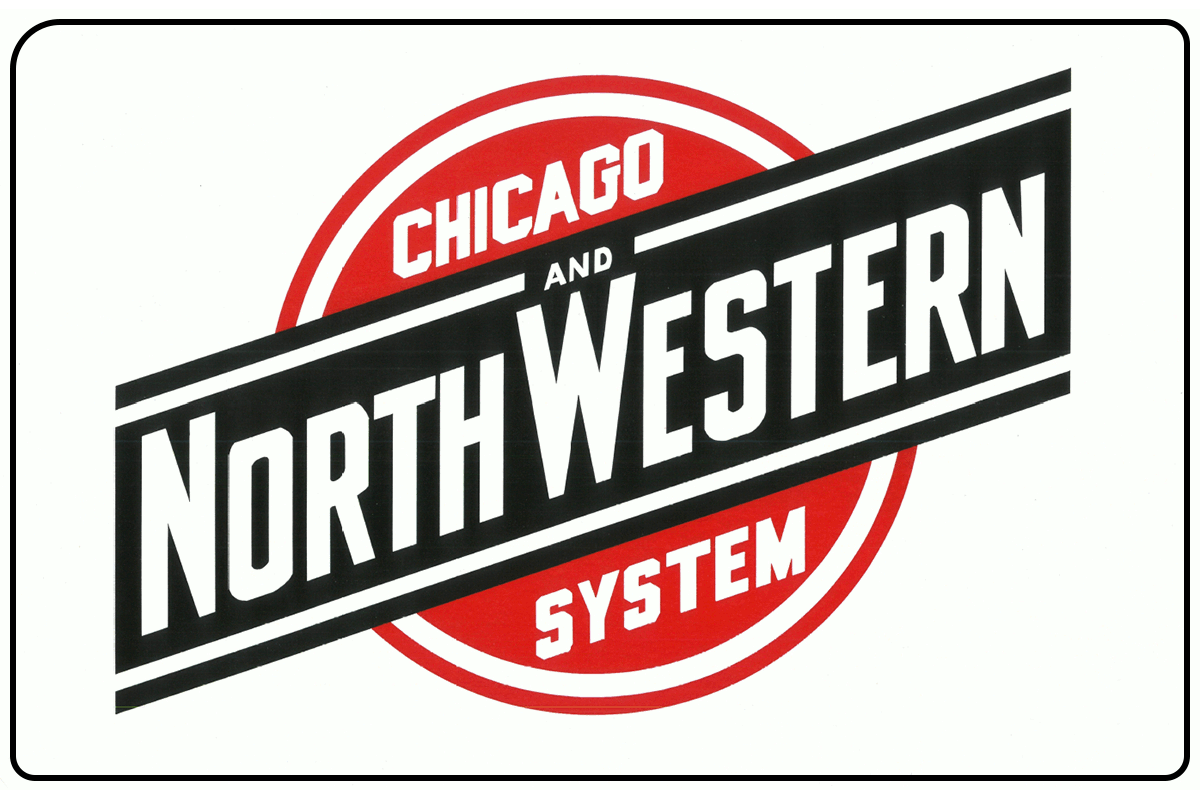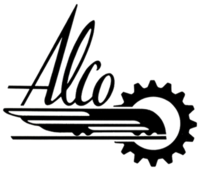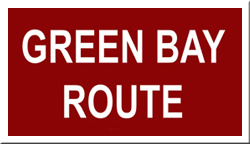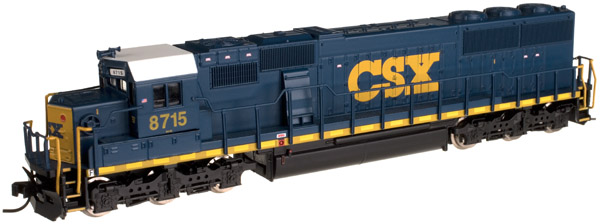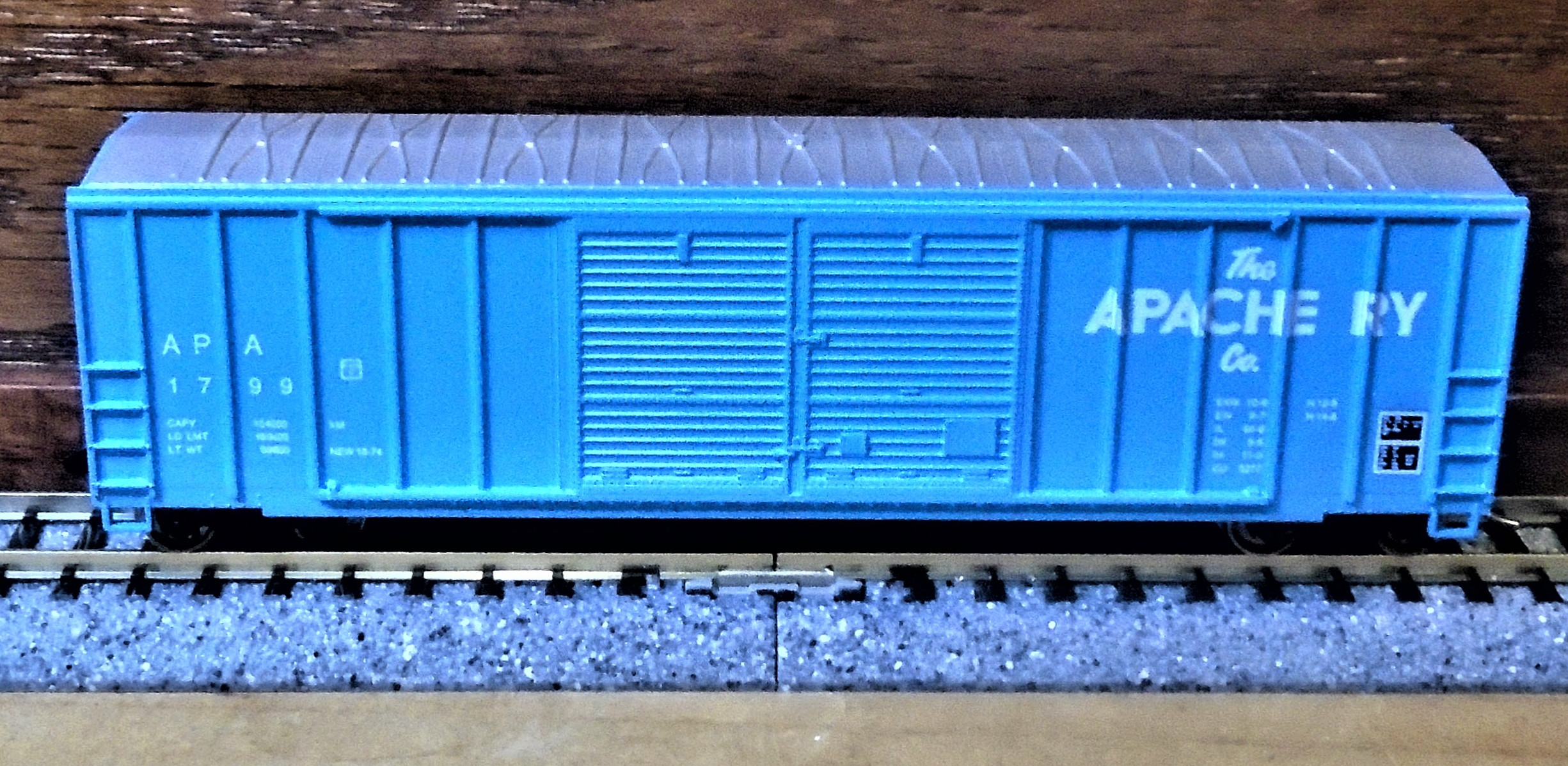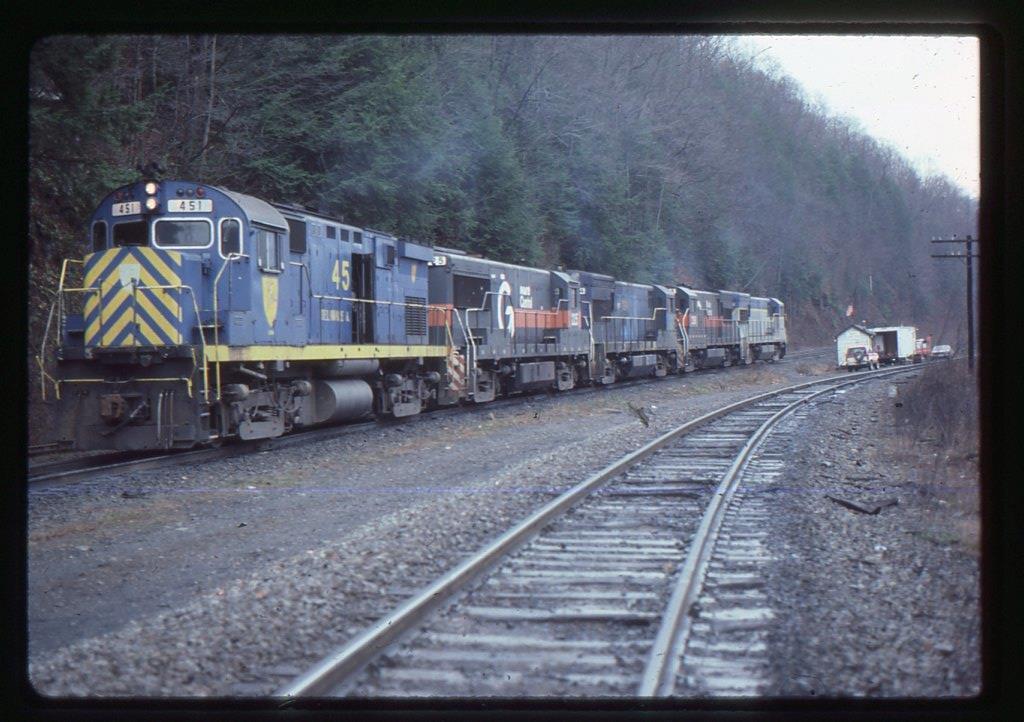Life-Like - 7654 - Locomotive, Diesel, Alco C-424 - Chicago & North Western - 402
Click to see the details
history
| Stock Number | 7654 |
| Original Retail Price | $80.00 |
| Brand | Life-Like |
| Manufacturer | Life-Like |
| Body Style | Life-Like Diesel Engine C-424/C-425 |
| Prototype Vehicle | Locomotive, Diesel, Alco C-424 (Details) |
| Road or Company Name | Chicago & North Western (Details) |
| Reporting Marks | CNW |
| Road or Reporting Number | 402 |
| Paint Color(s) | Yellow and Green |
| Coupler Type | Rapido Hook |
| Wheel Type | Nickel-Silver Plated Metal |
| Wheel Profile | Standard |
| DCC Readiness | No |
| Announcement Date | 2003-11-01 |
| Release Date | 2004-06-01 |
| Item Category | Locomotives |
| Model Type | Diesel |
| Model Subtype | Alco |
| Model Variety | C-425 |
| Prototype Region | North America |
| Prototype Era | NA Era IV: 2nd Gen Diesel (1958 - 1978) |
| Scale | 1/160 |
Model Information:
Life-Like Canada (no known as True Line Trains) first introduced this model in 2002. It was a limited edition run with only 180 trains produced for each of 5 paint schemes. In 2003, Life-Like (the USA parent) did a second release of this car in new paint schemes with no production limit. The engine is modern but lacks the capability for a drop-in decoder. It does, however, feature a split-frame, an all-metal chassis, a skew-wound 5-pole motor, dual flywheels, low-friction drive, bi-directional LED lighting, all-wheel drive and pickup (no traction tires), blackened / low-profile wheels, shell-mounted Rapido couplers and all-plastic gearing. The shell details i quire respectable as well with highly-detailed railings.
Assembly instructions of this model on HOseeker.net for the US version and here for the Canadian version.
Assembly instructions of this model on HOseeker.net for the US version and here for the Canadian version.
DCC Information:
Unfortunately, there is no support for DCC whatsoever.
A wired DCC decoder installation for this model can be found on Brad Myers' N-scale DCC decoder installs blog.
Also watch this video "N scale C424 diesel Life Like TCS M1 DCC decoder installation by AK Crazy Russian with DCCTRAIN":
A wired DCC decoder installation for this model can be found on Brad Myers' N-scale DCC decoder installs blog.
Also watch this video "N scale C424 diesel Life Like TCS M1 DCC decoder installation by AK Crazy Russian with DCCTRAIN":
Prototype History:
The ALCO Century 424 was a four-axle, 2,400 hp (1,790 kW) diesel-electric locomotive of the road switcher type. 190 were built between April 1963 and May 1967. Cataloged as a part of Alco's Century line of locomotives, the C424 was intended to replace the earlier RS-27 model and offered as a lower-priced alternative to the C425. Full data sheet on The Diesel Workshop.
Montreal Locomotive Works also built this locomotive as MLW Century 424 for Canadian railroads. Full data sheet on The Diesel Workshop.
The ALCO Century 425 was a four-axle, 2,500 hp (1,860 kW) diesel-electric locomotive of the road switcher type. 91 were built between October 1964 and December 1966. Cataloged as part of ALCO's "Century" line of locomotives, the C425 was an upgraded version of the C424. Full data sheet on The Diesel Workshop.
Read more on Wikipedia.
Montreal Locomotive Works also built this locomotive as MLW Century 424 for Canadian railroads. Full data sheet on The Diesel Workshop.
The ALCO Century 425 was a four-axle, 2,500 hp (1,860 kW) diesel-electric locomotive of the road switcher type. 91 were built between October 1964 and December 1966. Cataloged as part of ALCO's "Century" line of locomotives, the C425 was an upgraded version of the C424. Full data sheet on The Diesel Workshop.
Read more on Wikipedia.
Road Name History:
The Chicago and North Western Transportation Company (reporting mark CNW) was a Class I railroad in the Midwestern United States. It was also known as the North Western. The railroad operated more than 5,000 miles (8,000 km) of track as of the turn of the 20th century, and over 12,000 miles (19,000 km) of track in seven states before retrenchment in the late 1970s.
Until 1972, when the company was sold to its employees, it was named the Chicago and North Western Railway. The C&NW became one of the longest railroads in the United States as a result of mergers with other railroads, such as the Chicago Great Western Railway, Minneapolis and St. Louis Railway and others.
By 1995, track sales and abandonment had reduced the total mileage back to about 5,000. The majority of the abandoned and sold lines were lightly trafficked branches in Iowa, Illinois, Minnesota, South Dakota and Wisconsin. Large line sales, such as those that resulted in the Dakota, Minnesota and Eastern Railroad further helped reduce the railroad to a mainline core with several regional feeders and branches.
The company was purchased by Union Pacific Railroad (UP) in April 1995 and ceased to exist.
Until 1972, when the company was sold to its employees, it was named the Chicago and North Western Railway. The C&NW became one of the longest railroads in the United States as a result of mergers with other railroads, such as the Chicago Great Western Railway, Minneapolis and St. Louis Railway and others.
By 1995, track sales and abandonment had reduced the total mileage back to about 5,000. The majority of the abandoned and sold lines were lightly trafficked branches in Iowa, Illinois, Minnesota, South Dakota and Wisconsin. Large line sales, such as those that resulted in the Dakota, Minnesota and Eastern Railroad further helped reduce the railroad to a mainline core with several regional feeders and branches.
The company was purchased by Union Pacific Railroad (UP) in April 1995 and ceased to exist.
Brand/Importer Information:
 Life-Like Products LLC (now Life-Like Toy and Hobby division of Wm. K. Walthers) was a manufacturer of model railroad products and was based in Baltimore, Maryland.
Life-Like Products LLC (now Life-Like Toy and Hobby division of Wm. K. Walthers) was a manufacturer of model railroad products and was based in Baltimore, Maryland.
It was founded in the 1950s by a company that pioneered extruded foam ice chests under the Lifoam trademark. Because ice chests are a summer seasonal item, the company needed a way to keep the factory operating year round. As model railroading was becoming popular in the post-war years, they saw this as an opportunity and so manufactured extruded foam tunnels for model trains. Over the years, Life-Like expanded into other scenery items, finally manufacturing rolling stock beginning in the late 1960s. At some point in the early 1970s, Life-Like purchased Varney Inc. and began to produce the former Varney line as its own.
The Canadian distributor for Life-Like products, Canadian Hobbycraft, saw a missing segment in market for Canadian model prototypes, and started producing a few Canadian models that were later, with a few modifications, offered in the US market with US roadnames.
In 2005, the company, now known as Lifoam Industries, LLC, decided to concentrate on their core products of extruded foam and sold their model railroad operations to Wm. K. Walthers.
In June 2018, Atlas and Walthers announced to have reached an agreement under which all Walthers N scale rolling stock tooling, including the former Life-Like tooling, will be purchased by Atlas.
Read more on Wikipedia and The Train Collectors Association.

It was founded in the 1950s by a company that pioneered extruded foam ice chests under the Lifoam trademark. Because ice chests are a summer seasonal item, the company needed a way to keep the factory operating year round. As model railroading was becoming popular in the post-war years, they saw this as an opportunity and so manufactured extruded foam tunnels for model trains. Over the years, Life-Like expanded into other scenery items, finally manufacturing rolling stock beginning in the late 1960s. At some point in the early 1970s, Life-Like purchased Varney Inc. and began to produce the former Varney line as its own.
The Canadian distributor for Life-Like products, Canadian Hobbycraft, saw a missing segment in market for Canadian model prototypes, and started producing a few Canadian models that were later, with a few modifications, offered in the US market with US roadnames.
In 2005, the company, now known as Lifoam Industries, LLC, decided to concentrate on their core products of extruded foam and sold their model railroad operations to Wm. K. Walthers.
In June 2018, Atlas and Walthers announced to have reached an agreement under which all Walthers N scale rolling stock tooling, including the former Life-Like tooling, will be purchased by Atlas.
Read more on Wikipedia and The Train Collectors Association.
Item created by: Alain LM
on 2016-08-07 01:50:24
Last edited by: gdm on 2018-06-01 11:52:15
If you see errors or missing data in this entry, please feel free to log in and edit it. Anyone with a Gmail account can log in instantly.
Last edited by: gdm on 2018-06-01 11:52:15
If you see errors or missing data in this entry, please feel free to log in and edit it. Anyone with a Gmail account can log in instantly.



